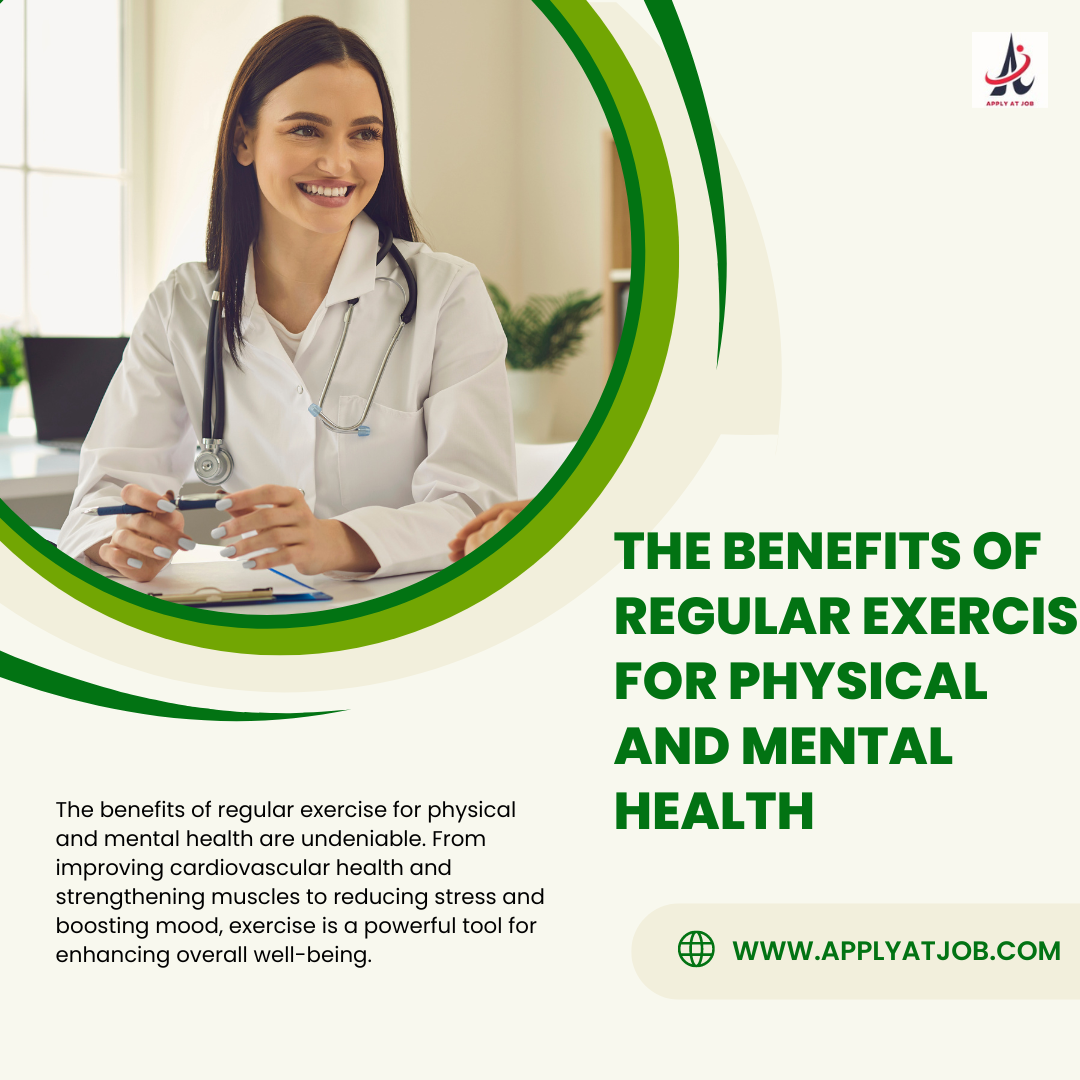
Benefits of Regular Exercise for Physical Health:
1. Weight Management:
A well-known advantage of consistent exercise is its ability to help one maintain a healthy weight. Physical activity promotes efficient weight management by burning calories, speeding up metabolism, and enhancing muscle mass.
. You may burn fat by engaging in aerobic workouts like swimming, jogging, or walking.
. Weightlifting and other strength training activities build muscle mass, which increases caloric expenditure even while at rest.
Retaining a healthy weight lowers the chance of long-term ailments like obesity, type 2 diabetes, and heart disease.
2. Better Heart and Circulatory Health:
Frequent exercise enhances circulation and fortifies the heart. Your heart's ability to pump blood becomes increasingly efficient, which lowers your risk of heart disease, stroke, and hypertension. Cardiovascular workouts, including swimming, cycling, and running, strengthen the heart and boost endurance.
Advantages consist of:
. Reduce blood pressure: Physical activity helps control blood pressure, which eases the burden on the heart and arteries.
. Better cholesterol: Exercise on a regular basis can increase good cholesterol (HDL) and decrease bad cholesterol (LDL).
. Lower risk of heart disease: Physical activity lowers blood pressure and obesity, two risk factors linked to heart disease.
3. Stiffer Bones and Muscles:
Particularly as we age, exercise is essential for preserving and increasing bone density and muscular strength. Weight-bearing activities that promote bone growth and slow down bone loss include jogging, walking, and strength training.
Advantages consist of:
. Enhanced muscular strength: Consistent strength training increases and preserves muscle mass, which is necessary for general strength, balance, and mobility.
. Improved joint function: Exercise increases the muscles around the joints and increases their flexibility, which lowers the chance of injury and relieves disorders like arthritis.
. Osteoporosis risk reduction: Weight-bearing activities, especially for older persons, can reduce bone density loss, which lowers the risk of fractures and osteoporosis.
4. Boosted Defenses:
By encouraging healthy circulation, which permits immune cells to travel more easily throughout the body, regular exercise can strengthen the immune system. It has been demonstrated that engaging in moderate physical exercise lowers the incidence and severity of common ailments including colds and respiratory infections.
Benefits of Regular Exercise for Mental Health:
1. Less Stress and Anxiety:
Stress and anxiety may be reduced by exercise, which is one of its most obvious advantages. Natural mood enhancers, endorphins are brain chemicals that are produced in response to physical exercise. The body's main stress hormone, cortisol, is also lowered by exercise.
. Better mood: Studies show that engaging in regular physical activity is linked to higher levels of happiness and wellbeing.
. Lower anxiety levels: Engaging in physical activity can help people feel less anxious and manage stress better.
2. More Restful Sleep:
Improved sleep quality has been associated with regular physical activity. Your body's circadian cycle is regulated by exercise, which facilitates falling and staying asleep.
Among the advantages of exercise for sleep are:
. Sleeping better and more refreshed: Exercise lengthens the duration of deep sleep, which facilitates faster falling asleep.
. Increased length of sleep: Regular exercise can help reduce sleep problems including insomnia.
3. Improved Mental Abilities:
Exercise has a major positive effect on brain health in addition to its physical advantages. Increased blood flow to the brain and the development of new brain cells are two benefits of physical activity that enhance memory, focus, and general cognitive performance.
. Improved concentration and focus: Exercise lengthens attention spans and sharpens focus.
. Decreased risk of cognitive decline: Research has demonstrated that regular exercise lowers the risk of dementia and Alzheimer's disease, particularly in older persons.
Advice for Including Frequent Exercise in Your Schedule:
Here are some pointers to get you started if you're ready to reap the rewards of regular exercise on your bodily and emotional well-being.
. Start out slowly: If you've never exercised before, start off with mild exercises like cycling or walking and work your way up to more intense ones.
. Select enjoyable hobbies for yourself: It's simpler to maintain a schedule when you engage in activities you like, whether it's dancing, hiking, swimming, or sports.
. Establish reasonable objectives: Set modest, attainable initial objectives, like working out for 30 minutes a day, then raise them as your endurance increases.
. Make it communal: Joining a fitness group or working out with a buddy might inspire you to exercise and make it more fun.
.Change things up: Change up your
Conclusion:
There is no denying the advantages of regular exercise for both mental and physical well-being. Exercise is a potent technique for increasing mood and lowering stress in addition to building muscles and improving cardiovascular health. One of the finest investments you can make in your health is including regular physical exercise into your daily routine, whether your goal is to avoid chronic disease, enhance mental health, or just feel more energized. The secret is to make exercise a regular part of your life and engage in things you like. Your mind and body will appreciate it!




